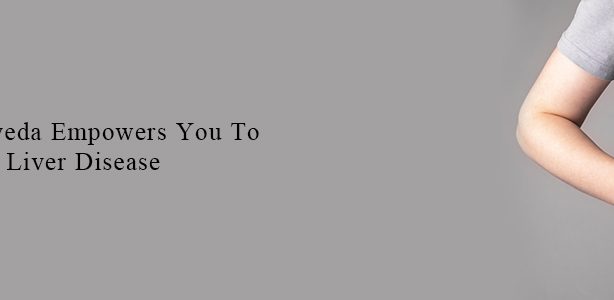Ayurvedic Singapore provides a holistic approach to understanding and managing amenorrhea Ayurveda Singapore experts say that amenorrhea refers to the lack of menstruation during a woman’s reproductive years. They add that amenorrhea doesn’t necessarily indicate infertility, but it can serve as a significant indicator of an underlying health issue.
According to Ayurveda Singapore experts, amenorrhea can be categorized into two types. If menstruation has never occurred by the age of 16, it is called primary amenorrhea. When menstruation has ceased for three or more consecutive cycles in a woman who has previously had regular periods, it is known as secondary.
Ayurvedic Singapore experts mention that symptoms of amenorrhea extend beyond the absence of menstruation. They may include pelvic pain, hair loss, changes in breast size, headache, vision changes, and acne. Furthermore, amenorrhea can be indicative of underlying health issues such as hormonal imbalances, thyroid dysfunction, stress, excessive exercise, or poor nutrition.
Amenorrhea can be caused by various factors, ranging from hormonal imbalances to lifestyle choices. Ayurvedic Consultants explain the common causes of amenorrhea:
Causes
Hormonal Imbalances: Disruptions in the delicate balance of hormones, particularly estrogen and progesterone, may lead to amenorrhea. Polycystic ovary syndrome (PCOS), thyroid disorders, and pituitary gland abnormalities can affect hormone levels and menstrual cycles.
stress: Physical or emotional stress can affect the hypothalamus, a brain region responsible for regulating hormone production. Chronic stress can create changes in the menstrual cycle, including amenorrhea.
Excessive Exercise: Intense physical activity, particularly endurance sports or excessive exercise routines, can disrupt hormonal balance and suppress ovulation, leading to amenorrhea. This condition, known as exercise-induced amenorrhea, is common among athletes and women with rigorous workout routines.
Low Body Weight: Significant weight loss, malnutrition, or eating disorders like anorexia nervosa can also lead in amenorrhea. Insufficient body fat can disrupt hormone production and interfere with the menstrual cycle.
obesity: On the other end of the spectrum, obesity can also contribute to amenorrhea. Excess body fat often create insulin resistance, disrupting hormone levels and menstrual regularity.
Medications: Certain medications, such as hormonal contraceptives, antipsychotics, chemotherapy drugs, and some antidepressants, can interfere with menstrual cycles and cause amenorrhea as a side effect.
Structural Abnormalities: Structural abnormalities in the reproductive organs, such as congenital anomalies, uterine fibroids, or scarring from surgeries or infections, can obstruct menstrual flow and lead to amenorrhea.
Menopause: Natural menopause, typically occurring around the age of 50, marks the cessation of menstruation due to declining hormone levels. Amenorrhea is a common symptom of menopause.
Genetic Factors: Rare genetic conditions, such as Turner syndrome or androgen insensitivity syndrome, can affect reproductive development and lead to primary amenorrhea.
Hormonal Birth Control: Some women may experience temporary amenorrhea while using hormonal birth control methods such as birth control pills, patches, or injections. This cessation of menstruation is often referred to as “birth control-induced amenorrhea” and is considered a normal side effect of these contraceptives.
Chronic Illness: Chronic health issues, such as diabetes, autoimmune diseases, or kidney disorders, can disrupt hormone balance and menstrual cycles, leading to amenorrhea.
Perimenopause: Perimenopause is the transition period leading to menopause. It can cause irregular menstrual cycles and occasional episodes of amenorrhea as hormone levels fluctuate.
Ayurvedic Singapore views health as a delicate balance between the mind, body, and spirit. Amenorrhea is seen as a disturbance in this balance, often stemming from impaired digestion and metabolism, vitiated doshas (biological energies), and disturbed agni (digestive fire).
Ayurveda Singapore’s Management of Amenorrhea
Ayurvedic Singapore offers a multifaceted approach encompassing dietary modifications, lifestyle adjustments, and herbal supplements.
Diet plays a pivotal role in Ayurvedic Singapore’s treatment plans. Foods that are nourishing, easily digestible, and rich in essential nutrients are recommended. Including warming spices such as ginger, cinnamon, and turmeric in meals can help stimulate agni and improve digestion. Additionally, incorporating iron-rich foods like leafy greens, lentils, and sesame seeds can replenish depleted stores and support healthy blood flow.
Lifestyle modifications are essential for restoring balance. Ayurveda Singapore also emphasizes the importance of establishing a regular daily routine (dinacharya) to synchronize with the body’s natural rhythms.
Herbal supplements are integral to Ayurvedic Singapore’s regimen. Herbs such as Shatavari, Ashwagandha, and Aloe Vera are renowned for their hormone-balancing properties and are commonly prescribed to address amenorrhea. However, it’s better to consult with a qualified Ayurvedic Consultant before incorporating herbal supplements into one’s regimen to ensure safety and efficacy.
In addition to dietary and lifestyle interventions, Ayurveda Singapore recommends Panchakarma, the Ayurvedic massage therapy popularly known as Kerala Massage, to eliminate toxins and restore balance to the body.
Consulting with a qualified Ayurvedic Consultant who can assess one’s prakriti (constitution) and doshic imbalances is crucial for effectively managing this condition.
In conclusion, amenorrhea is a multifaceted condition that requires a comprehensive approach to restore hormonal balance and promote overall health and well-being. Ayurveda Singapore aims to address the root cause of amenorrhea and restore harmony to the body, mind, and spirit.



